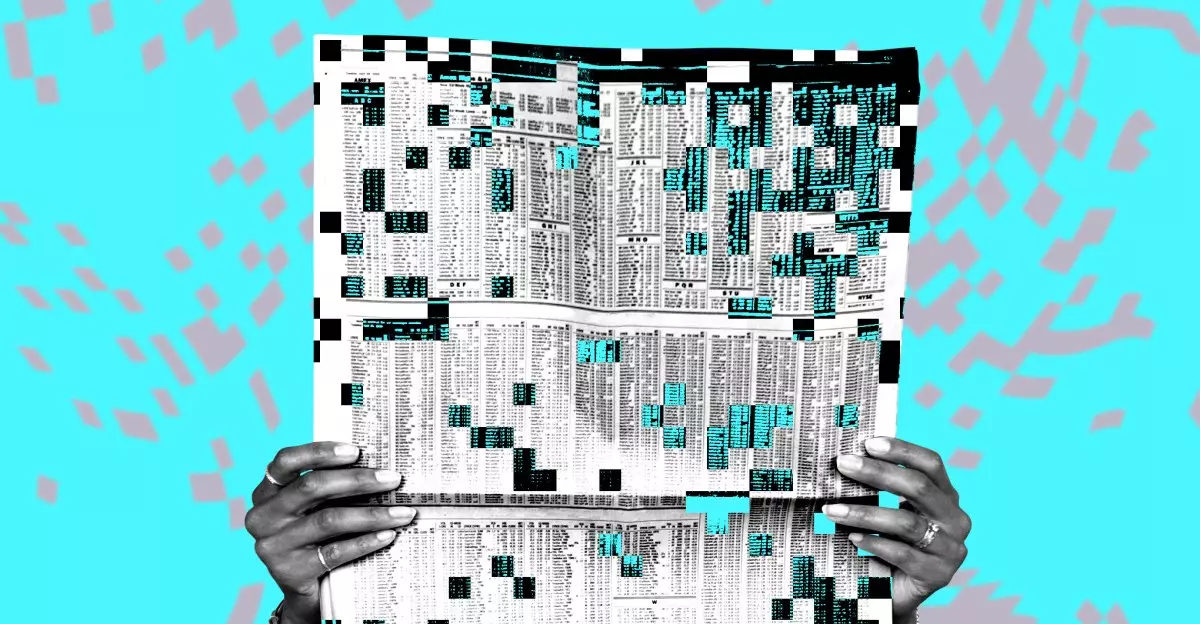In an age where digital content reigns supreme, a seismic shift is underway in how industries are grappling with the monopolistic hold of Big Tech, particularly concerning the usage of creators’ work. Hundreds of prominent publishers in the United States are uniting in an unprecedented ad campaign aimed at holding tech giants accountable for utilizing their content without proper compensation. This initiative, aptly named “Support Responsible AI,” is not merely a protest; it’s a clarion call to safeguard the very essence of creativity that fuels innovation across various sectors.
Creative Voices in Unison
The collective effort includes venerable institutions such as The New York Times, The Washington Post, and The Guardian, all championing the same cause: fair compensation for content creators. By running ads featuring slogans like “Keep Watch On AI” and “Stop AI Theft,” they spotlight an essential debate about the rights of journalists, artists, and writers whose works are the backbone of the Internet. With the apparent absence of a regulatory framework that honors the ownership of intellectual property, these publishers are positioning themselves as guardians of creativity in a digital landscape dominated by algorithms.
The Tensions Between Innovation and Exploitation
The campaign arrives at a critical juncture, just as tech powerhouses like OpenAI and Google push for permissions to harness copyrighted material for their AI models. This juxtaposition sheds light on the broader ethical implications of technological advancement. The words of Danielle Coffey, President and CEO of the News/Media Alliance, encapsulate this tension, as she highlights how Big Tech is, quite literally, extracting revenue from the very content that sustains it. This creates a dissonance where the digital economy thrives on the backs of creators yet offers scant recognition or recompense in return.
Implications of AI on the Creative Economy
What is at stake goes far beyond mere monetary considerations; it touches on the integrity of the creative ecosystem itself. Assigning value to original content is imperative for maintaining a system where creativity can flourish. If AI models are allowed to exploit creators’ work without due attribution or remuneration, the future of journalism and other creative sectors could be jeopardized. This recognition of intellectual property rights is crucial not just for the current generation of content creators but for the innovators of tomorrow who will rely on a healthy and thriving marketplace for their ideas.
Mobilizing Public Support for Change
The campaign cleverly employs modern tools to galvanize support, utilizing QR codes and links that direct the public to contact their local representatives. This initiative seeks to empower the average consumer to play an active role in shaping policy. It’s a smart strategy that bridges the gap between traditional advocacy and grassroots mobilization, emphasizing that this isn’t only a problem for publishers; it’s one that impacts everyone who values art, journalism, and creative expression.
In essence, as Big Tech continues to advance, the challenge of balancing technological innovation with the rights of creators becomes ever more pressing. The collective efforts showcased in this campaign serve not just as a warning but as a rallying cry to ensure that the value of creativity is recognized and preserved in a rapidly evolving digital age.


Leave a Reply